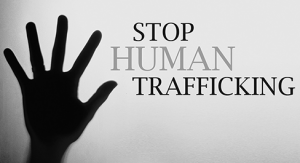Ghana outdoors Human Trafficking Prohibition Regulations 2015
 Mrs Victoria Natsu, Acting Executive Secretary, Human Trafficking Secretariat, says the root causes and contributory factors that fuel human trafficking are vast and should not be addressed in isolation.
Mrs Victoria Natsu, Acting Executive Secretary, Human Trafficking Secretariat, says the root causes and contributory factors that fuel human trafficking are vast and should not be addressed in isolation.
She said no one actor could tackle the issues of human trafficking and a comprehensive response to addressing the trafficking chain would require the combined action of various stakeholders.
Speaking at the launch of the Human Trafficking Prohibition (Protection and Reintegration of Trafficked persons) Regulations, 2015, L.I. 2219, Mrs Natsu said human trafficking is a new form of slavery and has become the third most profitable venture of organised crime globally.
The Ministry of Gender, Children and Social Protection, UNICEF, and the Human Trafficking Secretariat went through all the processes needed for the passage of the Legislative Instrument.
The aim of the Act is to prevent and combat human trafficking, protect and assist victims of trafficking, investigate and prosecute offenders of human trafficking, collaborate and promote cooperation among stakeholders and civil society groups.
Mrs Natsu said over the years various actions have been taken to combat Trafficking in persons, but in recent times the Human trafficking management Board has been reconstituted and meets quarterly and takes useful decisions.
“The Board is working in earnest with the Ministry of Employment and Labour Relations to weed out unlicensed recruitment agencies so as to eliminate irregular migration of our young women for explanation abroad,” he added.
Mrs Natsu said the process is guided by the Attorney Generals and went through consultations with stakeholders and the Parliamentary Select Committee on Subsidiary Legislative and was finally passed in November 2015.
She, therefore, crave the support of each and every one to join the Ministry to highlight the issues and dangers of trafficking in persons their communities and workplaces.
She also commended UNICEF for funding the printing of the legislations and copies of the Human Trafficking Act 694 (2005), which has been out of stock for some time now.
Emelia Allan, Child Protection Specialist at UNICEF, urged Ghana to move from policy to practice to address human trafficking in totality.
She said the outdooring alone would not solve the problem “we need to implement the regulations”.
She, therefore, urged stakeholders to think about the many children out there and come out with innovative programmes to rescue them.
Mr Alex Billings, the Project Manager of the International Organisation for Migration, asked stakeholders to be guided by the laws and strive to realise a system that effectively prevents human trafficking, protects victims, and prosecutes offenders.
He said the Human Trafficking Fund established by the Act in 2005, aimed at ensuring financial resources are available to facilitate comprehensive assistance for victims, including basic material support, skills training, and family tracing.
“The fund is meant to be used for the construction of shelters, training officials and any matter connected with the rescue, rehabilitation and reintegration of victims of trafficking in their best interest,” he added.
Mrs Judith Dzokoto Lomoh, Deputy Director of Ghana Immigration Service, pledged their support to work with stakeholders to achieve their target of eliminating human trafficking in Ghana.
Source: GNA
